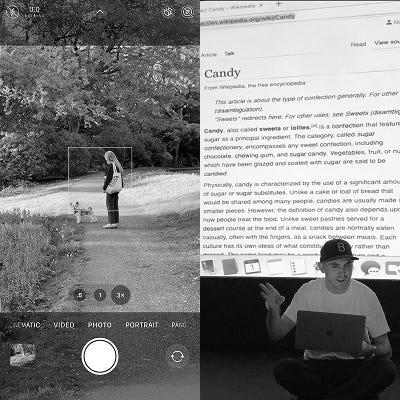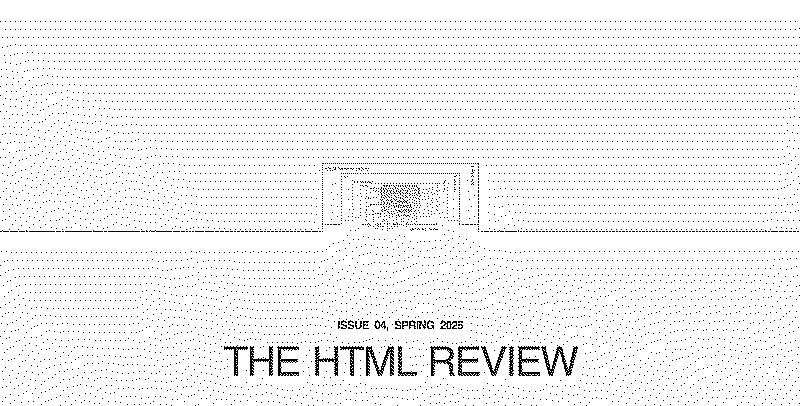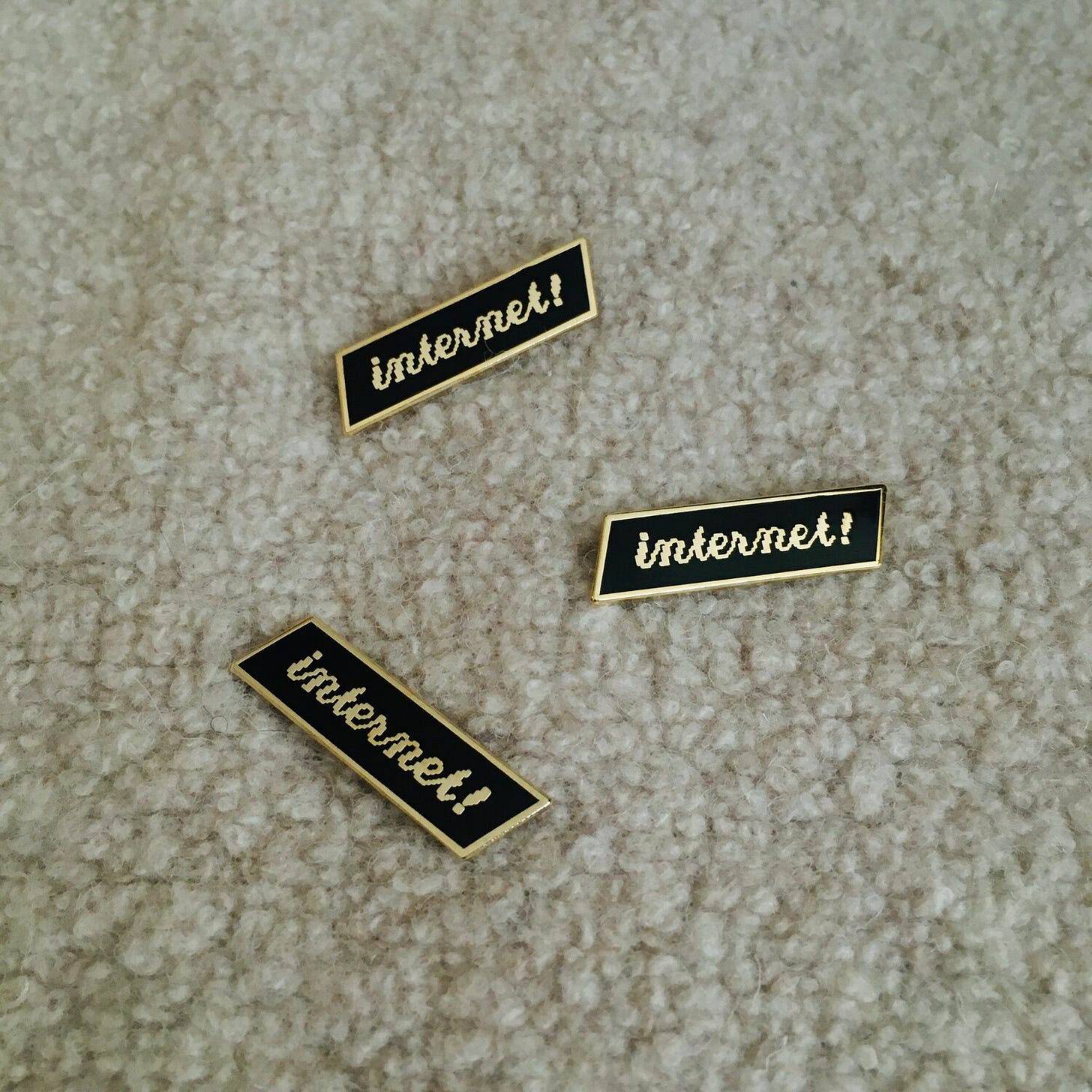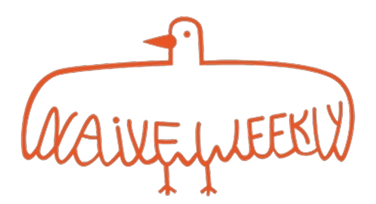Dear reader,
One of my self-imposed arbitrary rules for Naive Weekly is to never link to any mainstream media site. I do this to force myself to discover the internet understory of blogs, sites, and newsletters. Another rule is to avoid the word hope.
Today, to answer a reader’s question, I’ll break another of my arbitrary rules: never write about social media.
Mitchell: »Do you think personal websites will ever become more mainstream than social media?«
Social and media are two great words. I enjoy using each independently, but when they are combined, something shuts down inside me. Social media is a red flag, a noindex rule for my mind, like when I hear or read AI.
Writing about social media is saturated, and I’m fed up. In 2025, I doubt anyone believes the advertising-speak of social media platforms. The contrarian position is no longer to be critical of social media but to defend its ability to improve our lives and societies. But even the contrarian position bores me. Yes, I made friendships through social media, but so what?
My own journey away from social media started in 2018. I was conducting a self-initiated research project into post-social media, asking where people would go when they no longer believed social media was the right environment for socialising online.
In hindsight, it was a speculative research project because, back then, I couldn’t imagine a world without social media. Social media was everywhere—it was an active interface for how I perceived and engaged with the world. In one way or another, I thought about social media daily, if not hourly. When I got an idea for a project, I would start a social media profile. When I met a person, I would ask for their social media handle. When I was standing still, I would refresh my social media feeds.
Today, my feelings towards social media are best described as indifferent. I’m okay with social media existing, but I have no interest in any existing platform or the many imitations budding these days. Seven years ago couldn’t imagine a world without social media, now I doubt I will be using social media seven years from now, at least in any form resembling today’s dominant platforms.
I attribute this shift in perception to the rich and sprawling web of sites I’ve surfaced from writing Naive Weekly. These websites and the network of practitioners keeping them alive embody all the values I requested. It turned out that I didn’t need a redesign of social media. I just had to return to the internet. Social media may be our first touch point with the internet, but it should never be our last. Reducing the internet to social media is like going to the library and only browsing the horror section.
I’m convinced that allocating time and money to the wallets of a few companies is not beneficial for the many or the Internet. I also believe that everyone would benefit from tending a place online with the same care and attention they devote to their social media profiles.
Therefore, I’m tempted to answer yes to your question. But as much as I believe in personal websites, I’m unsure if I desire a world where they are more mainstream than social media. Rather than billions of personal websites, I’d wish for us to move one degree away from ourselves and instead participate in the active care and maintenance of websites for curiosities, experiments, communities, places, and knowledge.
With care,
Kristoffer
Shelby & Maxwell: The HTML Review
Shelby Wilson and Maxwell Neely-Cohen are two friends living in New York and behind the greatest contemporary publication for internet literature.
What is the HTML Review?
The HTML Review is a literary magazine that publishes work that utilizes the web as a medium. Each issue is a collection of poetry, essays, fiction, experiments, and art that all try to leverage or play with the web in different ways. Right now we publish once a year each Spring.
Why did you start it?
We had a lot of friends making cool things that didn’t have great artistic homes. We were really interested in what a magazine model could offer web-based art and text, how that might differ from other approaches. But mostly, we thought it would be a fun thing to try once, and here we are, four years later.
How are you thinking about it now?
It’s been a joy to watch it become the beginnings of a community, an ever-growing network of really cool people from extremely different backgrounds and methodologies entrusting a little bit of themselves to us. With each issue we keep learning more about what sort of work is the best fit for this model. The web is an ever-changing stage for performance and examination, we hope to keep publishing work that highlights its nuances and possibilities.
Field notes
1.
Wading Through Dreams. I asked Charmaine Li to talk about dreams at Naive Yearly because I see parallels between how online life relates to offline life and how dream life relates to awake life. I’m also attracted to dreams as an alternative narrative structure for understanding and engaging with the world: they appear less obsessed with answers and more in favour of questions.
2.
Desktop Diary #8. I adore this chaotic format where Molly Soda reflects on her screenshots. Molly has enough internet mileage to avoid banalities and spot wayside flowers at full speed.
3.
»Down with the thesis and qualifiers, I don’t care about the plot. There was a time in my life when the plot mattered, probably because it sells, but at this point I do not give a shit. Down with story structure and hooks and hero’s journeys. Up with poetics and sensations and contrapuntal narratives and people screaming.«
— Adriene Lilly in what I/we want to hear and make more of in the podcast/radio/audio art space.
4.
Calls for Participation: Robida is open for submissions (Due 31/3), Shed of the year (Due 31/3), Ensemble Park is open for submissions (Due 2/4), and FM[Ai]R is looking for residents (Due 10/4).
5.
Poetic Web Calendar: Dream Spheres (Berlin, 23/3), The Internet's Root System (online, 23/3), Bound to Make Friends (Rotterdam, 28/3), Steps toward Conserving Digital Artworks (online, 26/3), Spring Cleaning (hybrid, 27/3), and Softer Internet Futures (London, 12/4)
Kiosk: Internet pin
What? Gold and black hard enamel pin. 1.25” wide with black rubber pin backing.
Who? Helen Shewolfe Tseng is an artist and designer based in San Francisco, whose work is informed by their ongoing practices with wildlife observation, folk spiritualities, experimental self-publishing, computational poetry, game design, and trickster studies.
Price? $5.00 + shipping
Wayside flowers
Last email was sent to 4401 inboxes. You can send questions, comments, products, sites, links, and more to kristoffer@naiveweekly.com.








